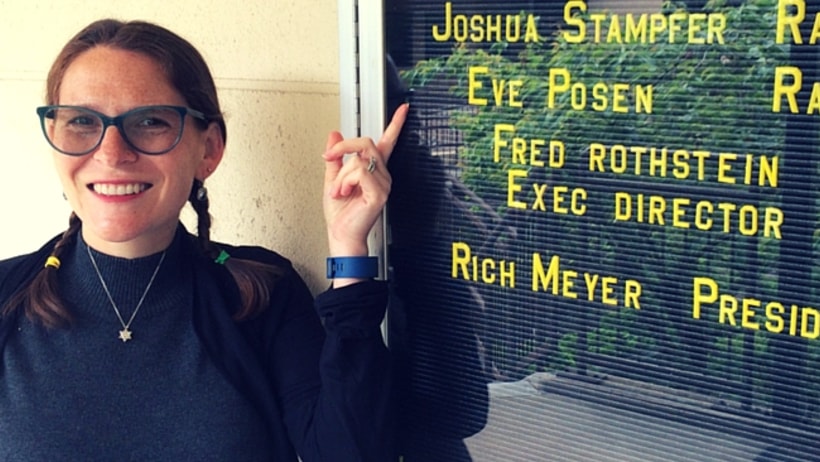People ask me why I chose to keep my maiden name when I married Duncan. There are a few reasons. First, I was already making a name for myself as a Jewish educator, and I didn’t want to lose that name recognition. Second, my sister and I are the only grandchildren on my father’s side; thus, with us the Posen name ends. Finally, and perhaps most importantly, I wanted to honor my family. My parents and my grandparents are the main reason I fell in love with Judaism. In sharing my passion with the world, I wanted to honor their work as well as their love and commitment to me. Being called “Rabbi Posen” brings me joy when I think about the great legacy of Jewish education and tradition in my family.

Well before I became a rabbi there were times when I was recognized as a Posen and reminded that my actions were a reflection on both me and my family. For better or worse, how we behave and act in the world reflects on the values of our upbringing and broader community. For example, when Bernie Madoff’s crimes were exposed, the Jewish community felt pain not only because Jewish organizations were victims of fraud, but also because it was one of our own committing these atrocities. At the opposite end of the spectrum, when gold medalist Aly Raisman became the most decorated American gymnast at the 2012 London Games, the Jewish community felt tremendous pride at what a member of “our tribe” had accomplished.
This week we read from parshat Emor, which begins with the specific rules and regulations of the priests as well as the laws about what we’re supposed to put into our bodies. The text continues with an in-depth look at the laws of our holidays and special times and concludes with the punishments brought upon those who have broken mitzvot of trust in relationships. With the laws about the priesthood comes one of the defining mitzvot about representing the Jewish community publicly.
Chapter 21, verse 6 states in reference to the priest as leader: “They shall be holy to their God and not profane the name of their God; for they offer the Lord’s gifts, the food of their God, and so must be holy.” This verse teaches that we are obligated to act in a way that reflects well on God, the Jewish people, and our traditions. When we act in this way, in the manner of kiddush HaShem, we are acting in a way that adds goodness and justice into the world. In doing so, this brings pride to our name and to our people. On the other hand, we are also taught to refrain from acting in a way that would bring dishonor to God, our people, and our traditions.
Parshat Emor, like so many other parts of our text, reminds us of the power in our actions. Like the priests in Torah and Temple times, today each of us is an ambassador for our families and our religion. You have the sacred responsibility of putting your best foot forward and bringing only joy, positivity, and good to the name and people you represent.



